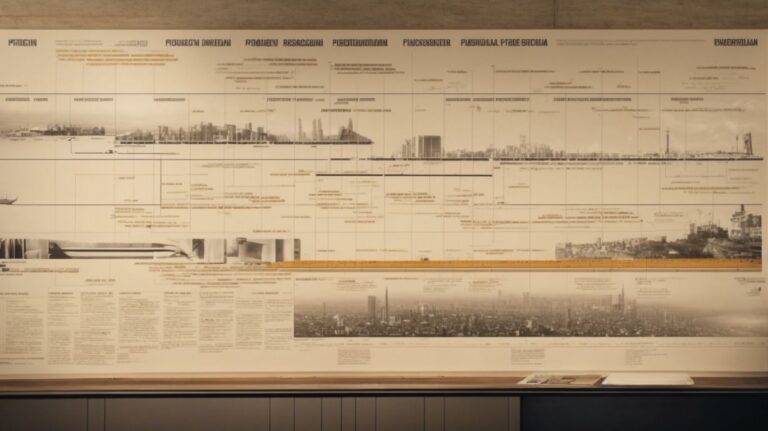Criminal profiling is a fascinating and complex field within forensic psychology that aims to understand and analyze the behavior and characteristics of criminals.
In this article, we will explore the goals and key elements of criminal profiling, including crime scene analysis, victimology, behavioral analysis, and offender characteristics. We will also discuss the different types of criminal profiling, such as investigative, geographic, and psychological profiling, and how this science helps in solving crimes by narrowing down suspects, providing insight into the offender’s mindset, and identifying patterns and motives.
We will delve into the controversies surrounding criminal profiling, including the lack of scientific evidence, potential for bias and stereotyping, and ethical concerns. Join us as we dive into the world of criminal profiling and its impact on the field of forensic psychology.
Contents
- 1 Key Takeaways:
- 2 What Is Criminal Profiling?
- 3 What Are the Key Elements of Criminal Profiling?
- 4 What Are the Different Types of Criminal Profiling?
- 5 How Does Criminal Profiling Help in Solving Crimes?
- 6 What Are the Controversies Surrounding Criminal Profiling?
- 7 Frequently Asked Questions
- 7.1 What is the science of criminal profiling in forensic psychology?
- 7.2 How does criminal profiling work in forensic psychology?
- 7.3 What is the goal of criminal profiling in forensic psychology?
- 7.4 What are some techniques used in criminal profiling in forensic psychology?
- 7.5 Is criminal profiling in forensic psychology an exact science?
- 7.6 Can anyone become a criminal profiler in forensic psychology?
Key Takeaways:
What Is Criminal Profiling?
Criminal profiling, also known as offender profiling, is a behavioral and investigative approach utilized by law enforcement and forensic psychologists to analyze the psychological and behavioral characteristics of offenders based on crime scene evidence, victimology, and other relevant factors.
Criminal profiling is a method used by law enforcement to gain insight into the potential motivations, traits, and patterns of behavior of an unknown perpetrator. This involves a thorough examination of crime scenes, including the type of weapon used, method of entry, and level of organization, to gather valuable information about the offender’s mindset and modus operandi.
This approach heavily relies on forensic sciences, such as DNA analysis, ballistic evidence, and trace evidence, to connect perpetrators to crimes and create a comprehensive profile.
What Are the Goals of Criminal Profiling?
The goals of criminal profiling encompass providing law enforcement agencies, particularly the FBI’s Behavioral Science Unit, with insights into the behavior and motives of offenders, aiding in the apprehension and prevention of criminal activities through rigorous investigative methodologies and contributing to the advancement of criminal justice programs, especially in addressing cybercrime.
Criminal profiling aims to delve into the psychological and behavioral patterns of criminals, assisting law enforcement in creating accurate offender profiles.
By understanding the mindsets and motivations of criminals, profiling techniques help predict their future actions, leading to the apprehension and deterrence of criminal activities.
More significantly, in the realm of cybercrime, profiling assists in identifying digital offenders, understanding their modus operandi, and developing proactive strategies to protect against cyber threats.
What Are the Key Elements of Criminal Profiling?
The key elements of criminal profiling encompass crime scene analysis, victimology, behavioral analysis, and the identification of offender characteristics, enabling law enforcement and forensic psychologists to differentiate patterns and behaviors across various offender categories, such as serial killers, organized offenders, and disorganized offenders.
Crime scene analysis involves a meticulous examination of the location where the crime occurred, including physical evidence, the positioning of objects, and any indications of ritualistic behavior.
Victimology delves into the background and relationships of the victims, shedding light on potential motives and connections between different crimes.
Behavioral analysis scrutinizes the actions and mindset of the offender, identifying patterns and potential triggers that can aid in creating a behavioral profile.
The differentiation of offender characteristics relies on understanding the modus operandi, signature behavior, and preferences exhibited in the commission of the crime, allowing for the development of offender profiles that aid in narrowing down suspects and predicting future behavior.
Crime Scene Analysis
Crime scene analysis plays a pivotal role in criminal profiling, involving the meticulous examination and interpretation of forensic evidence to construct a detailed understanding of the offender’s actions and potential geographical patterns, contributing to the development of geographical profiling methodologies and techniques.
By meticulously analyzing the evidence left at the crime scene, professionals in the field of criminal profiling are able to discern valuable insights into the nature of the crime and the behavioral characteristics of the perpetrator.
The careful scrutiny of physical evidence such as blood spatter patterns, fiber analysis, and weapon trajectories can often provide crucial clues about the sequence of events and the dynamics of the criminal act. This process aids in establishing a comprehensive behavioral profile of the perpetrator, looking into their psychological motivations and potential triggers for the crime.
Within the domain of forensic science, crime scene analysis serves as the cornerstone for the development of methodological advancements that continually refine investigative practices and enhance the accuracy of criminal profiling.
It aids in the formulation of standardized procedures for evidence collection, documentation, and preservation, which are integral in ensuring the validity and reliability of evidentiary material during legal proceedings.
The integration of technological advancements, such as DNA analysis and trace evidence examination, has revolutionized the efficacy and precision of crime scene analysis, pushing the boundaries of investigative capabilities.
The insights derived from crime scene analysis have significantly contributed to the emergence of geographical profiling, a specialized area within criminal profiling that focuses on spatial behavior and the spatial distribution of criminal activities.
By discerning patterns in offender behavior and the geographical distribution of crime scenes, geographical profiling aids law enforcement agencies in narrowing down suspect lists and strategically deploying resources for criminal investigations.
This innovative approach leverages the understanding of spatial relationships and behavioral consistency, thereby helping with the identification and apprehension of offenders.
Victimology
Victimology within criminal profiling involves the comprehensive examination of the relationships between offenders and their victims, looking into the psychological aspects of victim-offender interactions to discern patterns and motivations, aiding in the development of offender profiles and investigative strategies.
Understanding the victim’s role in the context of criminal behavior is crucial for profilers to gain insights into the offender’s mindset, behavioral patterns, and the dynamics of the crime.
By analyzing the impact of victimization, investigators can identify commonalities and disparities, thus recognizing key indicators that distinguish one offender from another. This careful examination of victim-related data serves as a foundation for formulating effective investigative approaches, leading to a deeper understanding of the underlying motivations and behavioral drivers of the offender.
Behavioral Analysis
Behavioral analysis constitutes a core component of criminal profiling, involving the systematic examination of offender behaviors, thought processes, and modus operandi to derive insights into their psychological traits and motivations, a process often facilitated by forensic psychologists and investigative psychology experts, especially within the FBI’s Behavioral Science Unit.
In the realm of criminal investigations, the employment of behavioral analysis serves as a crucial investigative strategy, looking into the intricate layers of human behavior to uncover patterns and potential leads.
This approach relies on psychological profiling techniques, drawing from the expertise of forensic psychologists and investigative psychology specialists, who utilize their knowledge to decipher the underlying behavioral cues exhibited by offenders.
Within law enforcement agencies such as the FBI, the amalgamation of behavioral science and criminal profiling plays a pivotal role in aiding investigations, as it provides valuable insights into the motives and characteristics of individuals behind criminal activities.
Offender Characteristics
The identification and analysis of offender characteristics are pivotal in criminal profiling, encompassing a specialized investigative approach aimed at discerning distinct patterns, traits, and motivations exhibited by offenders, facilitating the development of offender profiles that aid law enforcement in investigative endeavors.
Understanding offender characteristics involves a multi-faceted process, drawing from various disciplines such as psychology, criminology, and behavioral analysis. This intricate task typically begins with the meticulous examination of crime scene evidence, including behavioral patterns, modus operandi, and victimology, to extract valuable insights into the perpetrator’s mindset and tendencies.
Moreover, offender profiling plays a crucial role in developing investigative strategies by providing law enforcement with predictive indicators and behavioral patterns, allowing for a focused and efficient allocation of resources in solving criminal cases.
What Are the Different Types of Criminal Profiling?
Various types of criminal profiling exist, including investigative profiling, geographic profiling, and psychological profiling, each offering distinct methodologies and approaches to analyzing offender behaviors, motives, and patterns, thereby contributing to the comprehensive understanding of criminal activities.
Investigative profiling involves examining evidence from crime scenes and victimology to create a profile of the potential offender. This focuses on their behavior, habits, and personality traits.
Geographic profiling, on the other hand, utilizes spatial behavior to understand the location choices of an offender. This helps law enforcement narrow down the search area.
Psychological profiling delves into the offender’s psyche, investigating their thought processes, motivations, and possible triggers for criminal behavior. This provides insights into their actions.
Investigative Profiling
Investigative profiling involves a comprehensive analysis of offender behaviors and crime scene evidence, leveraging insights from forensic sciences and methodical investigative techniques to construct detailed offender profiles that aid law enforcement agencies in narrowing down suspects and solving complex cases.
This process often integrates forensic psychology to comprehend the psychological aspects of criminal behavior and discern patterns that might help predict the perpetrator’s next move or modus operandi.
It heavily relies on crime scene analysis and behavioral evidence examination to piece together a comprehensive understanding of the offender’s characteristics and possible motives, assisting law enforcement in developing strategies to apprehend the suspect.
Geographic Profiling
Geographic profiling within criminal profiling involves the spatial analysis of offender behaviors and crime locations, enabling law enforcement agencies, including the FBI, to discern geographic patterns and hotspots, aiding in the identification and apprehension of offenders through specialized offender profiling techniques.
This type of profiling plays a crucial role in understanding the spatial behavior of criminals.
By analyzing where crimes occur and the movements of offenders, law enforcement can create a geographical profile, which is instrumental in narrowing down potential suspects and predicting where future crimes may occur.
The use of geographic profiling has become increasingly important in modern criminal investigations, helping withvestigators in understanding criminal behavior in a geographical context.
Psychological Profiling
Psychological profiling forms an integral part of criminal profiling, involving the application of psychological theories and analysis by forensic psychologists and investigative psychology experts to derive insights into offender motivations, behaviors, and traits, aiding in the development of comprehensive offender profiles and investigative strategies.
This approach draws from a range of scientific disciplines, utilizing various techniques such as behavioral analysis, crime scene evaluation, and victimology to create a holistic understanding of criminal behavior.
The role of forensic psychologists is particularly crucial in this process, as they assess and interpret psychological data, providing valuable input to law enforcement agencies.
Furthermore, investigative psychology plays a significant role in integrating psychological principles into criminal investigations, employing concepts such as geographical profiling and offender profiling to provide actionable insights for law enforcement.
By incorporating psychological theories and methodologies into the profiling process, law enforcement can better anticipate an offender’s actions, thereby enhancing crime prevention and investigative efforts.
How Does Criminal Profiling Help in Solving Crimes?
Criminal profiling aids in solving crimes by narrowing down suspects, providing critical insights into the offender’s mindset and behavioral patterns, identifying distinctive crime patterns and motives, and contributing to law enforcement agencies, including the FBI and the Violent Criminal Apprehension Program (ViCAP), with specialized investigative approaches and techniques.
By analyzing crime scenes, understanding victimology, and scrutinizing the modus operandi of the offenders, criminal profilers play a crucial role in creating offender profiles.
These profiles serve as valuable tools for law enforcement, enabling them to prioritize leads, allocate resources effectively, and strategically plan their investigations.
The evolution of criminal profiling has significantly advanced investigative methods and contributed to the development of databases such as ViCAP, enhancing the collaboration among law enforcement agencies and increasing the chances of solving complex cases.
Narrowing Down Suspects
Criminal profiling plays a crucial role in narrowing down suspects through the systematic analysis of offender behaviors, investigative psychology techniques, and methodical methodologies, assisting law enforcement agencies in focusing their investigative efforts and resources towards potential suspects in criminal cases.
Investigative psychology forms the foundation of criminal profiling, as it delves into the psychological aspects of criminal behavior, including motive, triggering factors, and patterns. This interdisciplinary approach combines elements of criminology, psychology, and sociology to create a comprehensive understanding of the offender’s mindset.
By integrating this knowledge with detailed methodologies such as crime scene analysis, victimology, and behavioral evidence analysis, investigators can construct profiles that aid in identifying and prioritizing potential suspects. The significance of narrowing down suspects lies in efficiently allocating resources and time, allowing law enforcement to dedicate their focus on individuals most likely to be involved in criminal activities. As a result, criminal profiling holds an essential position in the investigative process, often proving to be a critical tool in solving complex cases.
Providing Insight into Offender’s Mindset
Criminal profiling provides critical insights into the offender’s mindset, behavioral patterns, and psychological traits, aiding law enforcement agencies in understanding the motivations, thoughts, and decision-making processes of offenders, thereby facilitating the development of effective investigative strategies and approaches.
By analyzing the behavioral patterns and actions of criminals, criminal profilers can discern key details about an offender’s personality, upbringing, and social interactions. This expertise enables law enforcement to construct profiles based on the unique characteristics and behavioral tendencies of the criminal.
Understanding the offender’s mindset is crucial, as it informs investigative tactics and helps law enforcement strategize approaches that are tailored to the specific attributes of the perpetrator. Criminal profiling often involves looking into the psychological aspects of offenders, exploring their reasoning, emotional triggers, and potential thought processes that may have influenced their criminal activities.
This close scrutiny of an offender’s psyche forms a cornerstone for elucidating motivations, potential triggers, and even potential modus operandi, which can be instrumental in devising investigative leads and preventive measures.
Identifying Patterns and Motives
Criminal profiling aids in identifying distinctive crime patterns and motives by examining offender characteristics, crime scene analysis, and behavioral indicators, providing law enforcement agencies with valuable insights into the modus operandi, motivations, and patterns exhibited by offenders in criminal activities.
Criminal profiling involves analyzing offender characteristics, including age, gender, and behavioral traits, to create a profile that aids in predicting future actions. By examining the crime scene, investigators can gather crucial information about the offender’s behavior, level of organization, and potential psychological state. Understanding these patterns and motives can help anticipate criminal behavior and inform law enforcement strategies for prevention and apprehension.
What Are the Controversies Surrounding Criminal Profiling?
The controversies surrounding criminal profiling encompass concerns related to the lack of scientific evidence supporting its methodologies, potential biases and stereotyping in profiling practices, and ethical considerations regarding the application of profiling techniques and their impact on the justice system and individual rights.
Many critics argue that criminal profiling, despite its widespread use by law enforcement agencies, lacks a solid scientific foundation. A common criticism is that the methods used in profiling are often based on intuitive judgments rather than empirical evidence.
This raises concerns about the accuracy and reliability of profiling outcomes, leading to potential miscarriages of justice. The reliance on subjective interpretations and generalizations in profiling practices has sparked debates about the perpetuation of biases and discriminatory attitudes towards certain groups within society.
Lack of Scientific Evidence
The lack of scientific evidence supporting certain aspects of criminal profiling has raised concerns regarding its reliance on forensic sciences, methodological rigor, and the evidentiary basis for profiling practices, prompting ongoing evaluation and refinement, especially within law enforcement agencies such as the FBI.
It is crucial to recognize that criminal profiling, as a field within law enforcement, has evolved and adapted in response to the growing body of forensic sciences, methodologies, and advancements in investigative techniques.
The reliance on scientific evidence in certain aspects of profiling remains a point of contention. The complexities of human behavior and the diversity of criminal motivations make it challenging to establish universally applicable scientific principles for all aspects of criminal profiling.
The challenges arise from the intricacies of linking behavioral patterns to specific offenders with a high degree of accuracy and reliability. While some profiling techniques have been widely accepted and integrated into investigative practices, there are limitations to the generalizability and predictive power of these methods.
As part of the ongoing evaluation, various law enforcement agencies, including the FBI, continuously assess the effectiveness and reliability of profiling methodologies in real-world scenarios.
Potential for Bias and Stereotyping
The potential for bias and stereotyping in criminal profiling practices raises ethical concerns, particularly in the application of psychological theories and profiling techniques, prompting critical evaluations of the impact of biases on investigative outcomes and individual rights within the criminal justice system.
Psychological considerations play a significant role in criminal profiling. This involves analyzing the behavior, motives, and personality traits of potential suspects. However, reliance on these theories and techniques can introduce biases, leading to profiling based on race, ethnicity, or socio-economic status.
The ethical implications of such biases can have far-reaching consequences. They can cast doubts on the fairness and objectivity of investigative procedures, affecting the rights of individuals and the overall integrity of the criminal justice system. Therefore, it is crucial to have a comprehensive understanding of the complexities surrounding bias in criminal profiling to address these ethical and legal challenges.
Ethical Concerns
Ethical concerns surrounding criminal profiling encompass the application of profiling techniques by law enforcement agencies and forensic psychologists, prompting discussions on privacy, due process, and the potential impact of profiling practices on individual liberties, necessitating ethical guidelines and oversight, especially within organizations like the FBI.
Criminal profiling raises significant ethical questions about the potential invasion of privacy and the violation of due process rights when the techniques are applied. This becomes especially critical in light of the profound consequences that profiling can have on individuals’ lives and liberties.
Forensic psychologists and law enforcement agencies must grapple with the delicate balance between protecting public safety and respecting individuals’ rights. The FBI and similar organizations are tasked with developing and upholding ethical guidelines that govern the use of profiling, ensuring that it is conducted with meticulous care and adherence to legal and moral standards.
Frequently Asked Questions
What is the science of criminal profiling in forensic psychology?
The science of criminal profiling in forensic psychology is a method used to identify and analyze patterns and behaviors of criminals in order to help law enforcement solve crimes and catch perpetrators.
How does criminal profiling work in forensic psychology?
Criminal profiling in forensic psychology involves studying crime scenes, evidence, and victimology to create a profile of the offender’s characteristics, motivations, and potential behavior.
What is the goal of criminal profiling in forensic psychology?
The goal of criminal profiling in forensic psychology is to provide law enforcement with valuable insights and information about the perpetrator in order to assist in their investigation and ultimately bring them to justice.
What are some techniques used in criminal profiling in forensic psychology?
Some common techniques used in criminal profiling in forensic psychology include analyzing crime scene photos, reviewing witness statements, conducting psychological evaluations, and using personality assessments.
Is criminal profiling in forensic psychology an exact science?
No, criminal profiling in forensic psychology is not an exact science. It is a tool that can provide useful information and insights, but it is not 100% accurate and should not be solely relied upon in investigations.
Can anyone become a criminal profiler in forensic psychology?
No, not just anyone can become a criminal profiler in forensic psychology. It requires a combination of specialized training, experience, and advanced degrees in psychology, criminology, or law enforcement.




